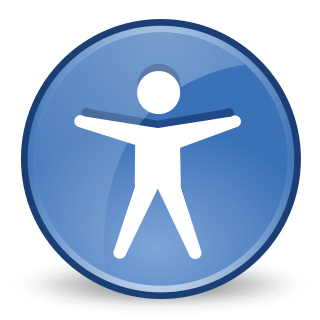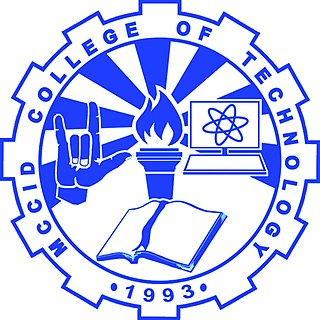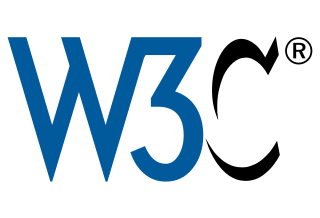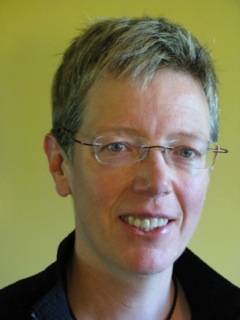
In 1998, the U.S. Congress amended the Rehabilitation Act to require federal agencies to make their electronic and information technology accessible to people with disabilities. Section 508 was enacted to eliminate barriers in information technology, to make available new opportunities for people with disabilities and to encourage the development of technologies that will help achieve these goals. The law applies to all federal agencies when they develop, procure, maintain, or use electronic and information technology. Under Section 508, agencies must give employees with disabilities and members of the public access to information that is comparable to the access available to others.
The World Wide Web Consortium (W3C)'s Web Accessibility Initiative (WAI) is an effort to improve the accessibility of the World Wide Web for people with disabilities. People with disabilities encounter difficulties when using computers generally, but also on the Web. Since they often require non-standard devices and browsers, making websites more accessible also benefits a wide range of user agents and devices, including mobile devices, which have limited resources. According to a US government study, 71% of website visitors with disabilities will leave a website that is not accessible.

Accessibility is the design of products, devices, services, vehicles, or environments so as to be usable by people with disabilities. The concept of accessible design and practice of accessible developments ensures both "direct access" and "indirect access" meaning compatibility with a person's assistive technology.
Web accessibility, or eAccessibility, is the inclusive practice of ensuring there are no barriers that prevent interaction with, or access to, websites on the World Wide Web by people with physical disabilities, situational disabilities, and socio-economic restrictions on bandwidth and speed. When sites are correctly designed, developed and edited, more users have equal access to information and functionality.

Accessibility Toolkit (ATK) is an open source software library, part of the GNOME project, which provides application programming interfaces (APIs) for implementing accessibility support in software.
Nonprofit technology is the deliberative use of technology by nonprofit organizations to maximize potential in numerous areas, primarily in supporting the organization mission and meeting reporting requirements to funders and regulators.
The original Bobby was a free online tool, written by Josh Krieger and provided by the Centre for Applied Special Technology (CAST), used to validate websites for WAI and Section 508 compliance. Launched in 1995, it became well known for the usage of the Bobby Approved icon that website authors could use to indicate they have successfully passed the Bobby online test. Development was coordinated by Chuck Hitchcock, CAST's Chief Officer of Policy and Technology, and further developed by David Clark and Michael Cooper.

Manila Christian Computer Institute for the Deaf (MCCID) is a non-sectarian, post-secondary, Christian foundation school for the deaf in the Philippines authorized by the Technical Education and Skills Development Authority (TESDA) to offer non-degree computer and other technical training programs.

The Web Content Accessibility Guidelines (WCAG) are part of a series of web accessibility guidelines published by the Web Accessibility Initiative (WAI) of the World Wide Web Consortium (W3C), the main international standards organization for the Internet. They are a set of recommendations for making Web content more accessible, primarily for people with disabilities—but also for all user agents, including highly limited devices, such as mobile phones. WCAG 2.0 was published in December 2008 and became an ISO standard, ISO/IEC 40500:2012 in October 2012. WCAG 2.2 became a W3C Recommendation on 5 October 2023.
Within the field of human–computer interaction, accessibility of video games is considered a sub-field of computer accessibility, which studies how software and computers can be made accessible to users with various types of impairments. It can also include tabletop RPGs, board games, and related products.
The San Francisco Digital Inclusion Strategy (SFDIS) is a policy initiative in San Francisco, CA. It is part of TechConnect, which is an initiative aimed at achieving Mayor Gavin Newsom's campaign promise to provide all San Franciscans with free wireless internet access.
Virtual volunteering refers to volunteer activities completed, in whole or in part, using the Internet and a home, school buildings, telecenter, or work computer or other Internet-connected device, such as a smartphone or a tablet. Virtual volunteering is also known as online volunteering, remote volunteering or e-volunteering. Contributing to free and open source software projects or editing Wikipedia are examples of virtual volunteering.
Ace Centre, previously ACE Centre is a non-profit organization in England that supports people with communications difficulties.
Design for All in the context of information and communications technology (ICT) is the conscious and systematic effort to proactively apply principles, methods and tools to promote universal design in computer-related technologies, including Internet-based technologies, thus avoiding the need for a posteriori adaptations, or specialised design.

The Lighthouse of Houston is a private, non-profit education and service center dedicated to assisting blind and visually impaired people in the Houston, Texas, United States metropolitan area to live independently. The Lighthouse serves approximately 9,000 people each year and is a member agency of the United Way of Greater Houston.

The Digital Writing and Research Lab (DWRL) is a research lab at The University of Texas at Austin, United States, dedicated to the identification and promotion of twenty-first-century literacies. These literacies range from navigating online newsfeeds and participating in social networking sites to composing multimedia texts that require producing, sampling, and/or remixing media content.
Technology For All is a nonprofit organization based in Houston, Texas. Developed in 1997 by local entrepreneurs, Technology For All services community-based organizations with computer technology, training, and other digital incentives “to empower under-resourced communities through the tools of technology.” Through the National Telecommunications and Information Administration's Broadband Technology Opportunities Program grant, Technology For All (TFA) currently hosts 19 public computer centers.

The DO-IT Center is based at the University of Washington (UW) in Seattle, Washington. Founded in 1992, DO-IT’s mission is to increase the successful participation of people with disabilities in postsecondary education and careers, in STEM fields and careers, and in computing fields and careers throughout the U.S. It directs the national AccessSTEM program, and co-directs the national AccessComputing Alliance focused on engaging people with disabilities in computing fields.

Jutta Treviranus is a full Professor at the Ontario College of Art and Design University (OCADU) in Toronto, Canada. She is the director and founder of the Inclusive Design Research Centre (IDRC) and the Inclusive Design Institute (IDI).
WebAIM is a non-profit organization based at Utah State University in Logan, Utah. WebAIM has provided web accessibility solutions since 1999. WebAIM's mission is to expand the potential of the web for people with disabilities by providing the knowledge, technical skills, tools, organizational leadership strategies, and vision that empower organizations to make their own content accessible to people with disabilities.








